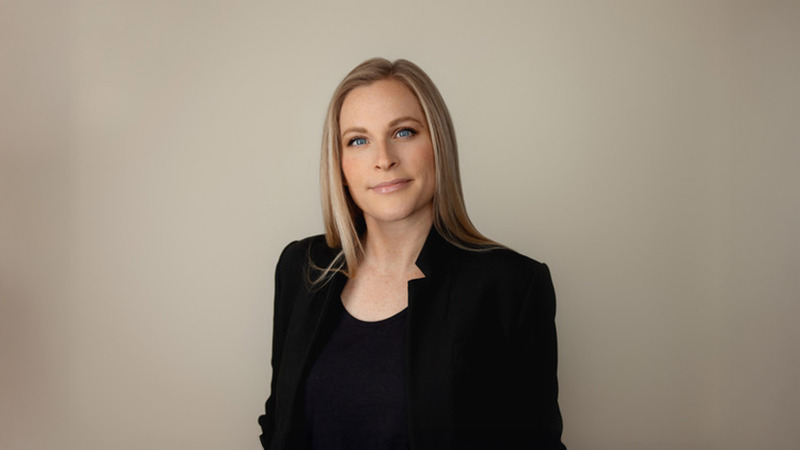You are viewing your 1 free article this month. Login to read more articles.
Small presses fear being 'wiped out' by autumn
A significant proportion of the UK and Ireland's smallest independent presses say their businesses are at risk as a result of the coronavirus lockdown, having seen sales plunge and cash quickly run out. A number of presses, including Jacaranda Books and Knights Of, have launched crowd-funders in order to ameliorate the damage, but others have called for the industry to step-up with a support scheme.
A survey launched this week by The Bookseller and writer development charity Spread the Word received 72 responses in its first 48 hours, indicating the parlous condition of the sector and the need for immediate assistance. Publishers completing the questions included some of the most well-known presses from across the UK and Ireland, including Dead Ink Books in Liverpool, Bluemoose Books in Hebden Bridge, Norfolk press Galley Beggar, London's Pluto Press, Jacaranda Books and Orenda Books, September Publishing based in Kent, Scotland's Fledgling Press, Seren and Firefly Press from Wales, and Ireland's Lilliput Press. The vast majority of publishers polled had fewer than 10 staff.
The survey found that close to 60% of small presses polled said they could be out of business by the autumn, with half of that number indicating they were facing a medium to high risk of shutting down altogether. The figures for those who thought they would cease trading before March next year were even more startling, with 75% indicating that it was a concern, and 36% stating that they were a medium to high risk of closing. One commented: "We are likely to struggle after September and into 2021 as cash will start to run out." Critically, 57% said they had no cashflow to support the business going forward; 86% had had to cancel events; 18% said they could no longer offer advances; while 25% said they could not afford to take on new titles.
Some presses felt more positive: about 40% said they would be fine in the short-term, with 28% also confident about their longer-term health. This would depend, one cautioned, on whether support came through from the government or the regions’ Arts Councils, and/or how trading develops over the next few months.
Karen Sullivan, founder of Orenda, said: “We are ineligible for any government support. Our office is in our home, which rules out most schemes. Our staff is freelance so we cannot furlough; they cannot apply for funding because we need them to work in order to have some semblance of a publishing schedule in upcoming months/years and there is work to be done … but how do we pay them? Our print sales are at about 5% to10% of their usual levels, at a push. We applied for a government-backed loan the moment the option became available, but never even got a response.” Sullivan added that better news had recently come in, in the form of Arts Council England’s emergency funding. “This is a massive relief and although it's a drop in the bucket in terms of the overall picture, it will really make a difference.”
Of the 72 publishers that took part in the survey, 85% said they had seen a drop in sales of more than 50%, with 45% experiencing a decline of over 70%. Nathan Connolly, director of Liverpool-based Dead Ink, said many independent publishers would not be supported by the funding schemes available. "Practically overnight we have gone from a promising independent press experiencing rapid growth year-on-year, to having our reserves depleted and being reliant upon Arts Council England funding that may feasibly, and understandably, not materialise," he said. Connolly added: "From discussions with other small publishers, our current position is not exceptional. Realistically, we could witness the collapse of the majority of the independent publishing sector at our scale."
In response to the results, a joint statement made by the Literature Development Agencies in England read: “The impact of Covid-19 has revealed the fragility of the sector. We would call on the industry as a whole to review how business is done—from supply chains through to returns—and for funders into the independent sector to open up a conversation about how investments could be made to ensure small presses and independents continue to thrive.”
Stephen Lotinga, c.e.o. of the Publishers Association, said: “This survey is a startling reminder of how difficult some smaller publishers are finding staying afloat in these challenging times and should serve as a wake-up call to the government that there are many small businesses in the creative industries that need further assistance. We will continue to make the case that publishers shouldn’t be paying business rates and that the government should be offering more flexible furloughing arrangements as well as ensuring that the existing support is not suddenly halted.”
Bridget Shine, Independent Publishers Guild chief executive, pointed to frustrations over government support for small businesses: "We are hearing too many reports of publishers getting frustrated in their efforts to obtain loans because banks are reluctant or slow to lend. Every day of delay is damaging, and it’s absolutely crucial that government ensures cash from loans and grants gets to bank accounts as soon as possible. We’re in ongoing conversations with government to press the need for that to happen. It goes without saying that we would also like government to allow bookshops to reopen promptly when lockdown restrictions are eased, and we fully support the great work that the Booksellers Association has been doing to support our friends in independent bookselling. We would warmly welcome any other form of support and championing of our smallest publishers from the trade."
Sophie O'Neill, managing director of Inpress, said: "The responses definitely reflect the situation for Inpress and our publishers. We have re-forecast trade sales to be reduced by 75% from April to June, and the reality was not quite that bad for April, but still 67% below our original budget. Across the financial year we are preparing for a shortfall of 50% in total print trade sales, we have seen our sales increase over the last five years and 2020/21 was going to be a big year for sales for our publishers."
Of the publishers polled, 90% said printed books made up the bulk of their sales, demonstrating how reliant on high street bookshops and events these publishers are, with e-books marginal for most and audio non-existent. As a result some were fearful of an ongoing slump in sales if "austerity politics" were implemented post-pandemic. Others suggested the country's economic climate would not sustain independent publishers going forward. Mick Felton of Seren said he was concerned about the "purchasing power of the general public in the context of job losses and recession, "and the effect that would have on independent publishing”.
Many publishers were also concerned about the aftermath of the pandemic. Veruschka Selbach, m.d at Pluto Press, said: "I am particularly concerned about the landscape of the trade when we come through this. Independent booksellers were experiencing a resurgence. It will be hard to get that back. Amazon will be stronger than ever." Selbach added she was "worried about having to make staff redundant", as the company had been expanding, and losing staff would "stunt that growth."
O'Neill added: "The crisis is really going to hit our publishers come September when they should be spending money on promoting their autumn lists and will be suffering significant cash-flow problems due to the drop in sales we are currently experiencing. The tightest time for us financially will be September to January."
While established small presses cast doubt on their longevity, recently opened presses have struggled to get off the ground, citing a combination of lockdown restrictions and a lack of emergency funding as the cause. Bella Pearson, children's book publisher at Oxford-based Guppy Books launched the company last year, but said lockdown was severely undermining its future. She felt there was "absolutely no funding out there for [them] as new publisher with a small turnover".
Guppy Books has been trading for six months, and had plans in place to "transform the business" this year. As lockdown continues, Pearson said she would "struggle to acquire for a year as current commitments must be fulfilled", and that to a new independent press, the pandemic "has been a massive blow".
Several indies said they felt the financial support on offer was not applicable to them, with only 16% of publishers surveyed receiving any kind of revenue from bodies, including Arts Council England and Creative Scotland, though others did point to different sources of income including the Welsh Books Council, governments, and UNESCO. Other spoke of their difficulties getting grants.
Penny Thomas, publisher at Firefly Press, said: “We have applied for the Welsh Government Economic Resilience Fund and were initially told we were successful but now they have asked for more details so I'm not sure what is happening with that. We have applied to the Arts Council of Wales for a project to involve authors but as we are not usually eligible for funding from them I don't know whether there's any chance we will be successful. We understand the Books Council of Wales has (just) ¬£150,000 to be spread between all the bookshops and publishers in Wales, but there is nothing to apply for yet, despite us asking. We can't furlough without having to stop almost all work as we are so small and this would mean having no summer or autumn books to sell. So far we have pushed spring titles back a little and cut print runs and, thanks to hard work by staff online and to our reps Bounce, and distributors GBS, we are getting sales but we are still some 70% to 80% down on sales since the lockdown.”
Connolly said if the lack of financial support continued, "only those businesses with private access to capital will survive and much of the good work done by small publishers, many of them from backgrounds traditionally under-represented in publishing, will be wiped out". He added that independent publishers are regarded as "agile and tenacious", but warned that "what is forming is the exact set of circumstances [indies] are not capable of outlasting. Without intervention, it is likely to only be those with access to private capital reserves who remain."
The survey found that 60% of the publishers responding published literary fiction, and 30% published poetry; more than 40% focused on debut writers; while Black, Asian and Minority Ethnic writers and writers from disadvantaged backgrounds were the focus of many of the presses. The statement put out by the Literature Development Agencies in England added: “Small and independent presses play a crucial role in the literature ecosystem of the UK. They are at the forefront of discovering new writers and opening up reading choices through publishing titles often ignored by mainstream publishers. For literature development agencies, they play a vital role in our local communities. If we want to continue to open up writing as a career choice, particularly for under-represented writers, and to develop new audiences for books, we need a healthy independent sector."
Some presses felt the pandemic had only worsened the situation that smaller publishers usually endured, with some saying they lacked representation from industry bodies. Founder of Jacaranda Books Valerie Brandes said indies could not hope to build sustainable businesses when "competing in the same category as long-term companies such as Faber". She added the industry needed more "awareness of the challenges of building a sustainable business essentially from scratch", and "multi-layered support".
One fifth of participants said they had had to delay all titles scheduled for publication between March and September 2020, raising concerns that small presses would struggle for attention in what will be a huge autumn for many books and publishers. Inpress' O'Neill said: "We are looking to the summer and how we can help our publishers and the wider indie publishing community get their autumn titles seen and noticed by both the book trade and the consumer in what is going to be an extremely noisy and packed market."
As lockdown continues in the UK, indies were also implementing innovative measures to maintain some sales. Hannah MacDonald, founder of September Publishing, said she was "very glad" to have a direct to customer online shop, but said that, for smaller publishers, "investment in tech is expensive and holds creative industries back". She added that free or affordable support in this area was necessary, and "worth lobbying the government for".
Other publishers The Bookseller contacted were optimistic, and felt that community spirit and different opportunities had arisen despite the decline in sales. Managing director of Inspired Quill Sara-Jayne Slack said: "On a positive note—many more businesses have created online shopping platforms, and the 'we're all in this together' attitude has made the challenges seem a bit more bearable to know we're not in a vacuum."
Sam Jordison, founder of Galley Beggar, admitted: "Financially, it's been awful, but there has at least been a lot of online validation of the work we do." He added: "It's clear our books have helped readers through lockdown and will matter to them in the future."
Commenting on necessary measures to ensure the safeguarding of independent presses, Ruth Harrison, director at Spread the Word, added: "The publishing industry needs to talk and listen with small and independent presses about what strategic and structural changes would be useful to support them to survive and thrive in the longer-term from new alliances in a similar vein to the Northern Fiction Alliance; greater involvement of the publishing trade bodies to champion the work of the indies; to wider co-ordination across the industry to support innovation and digital infrastructure that will ensure greater stability for all. The world has already changed because of Covid-19. If we want to ensure the diversity and vibrancy of our literary and publishing culture, the industry as a whole must not let small and independent presses fall."
Responses to the survey supplied to Spread the Word
“The crisis is really hard for everyone in the small press world. Supply chains have been disrupted, money has stopped coming in, big parts of the trade are going under (the news about Bertrams is especially sad)… And since small presses are usually very reliant on cashflow to stay afloat and don’t have big reserves of cash, that’s really troubling. The short answer about what we need to survive is cash—preferably without interest, and preferably soon! But, of course, that’s easier said than done… More practically, we’re open to ideas. Subsidies for print runs would help. We’re also really worried about returns and it would be a really good way of helping the whole industry and killing two birds with one stone if bookstores could be subsidised to keep hold of stock and/ or write it off…”
Galley Beggar Press
“Influx has, like many other presses, moved some of our key publications from May and June to later in the year, which will hugely affect our turnover during these periods. The closure of bookshops has affected us gravely, with a drop in trade sales of about 80% since March. We had some serious marquee events cancelled including bringing Percival Everett to the South Bank Centre, which not only affects income, but our ability to grow and engage new audiences. We are always positive about publishing and always pushing to be better and do well ‚Äì we've been producing free audio content for our readers and we held an Eley Williams short story auction, but currently, it's incredibly trying.”
Influx Press
“Loss of almost all of our trade (bookshop) income, which has dropped to about 20% of usual levels in April, and on the lockdown, represented the loss of 75% of our total income almost overnight. We are also bracing ourselves for the inevitable returns, especially for books ordered in late February for festival events and live performances. Some print runs will be reduced as a result of the current circumstances.
We've also lost the usual office facilities that make our jobs easier—so a lot of lost time for staff as they adjust to working from home. Our authors have lost on average between 5 ‚Äì10 live events each, so we estimate the loss of at least 30 live events since the middle of March when cancellations began. This includes their launches, and high profile events at major national and international festivals. We expect to lose somewhere between ¬£3‚Äì5k worth of sales that are attached to some of those events and festival appearances, just in the first half of this financial year. Many of our writers lost out on work and opportunities to perform, take part in projects or teach workshops, to the value of several thousand pounds of work in some cases.”
Nine Arches Press
“At V Press, I don't feel we can take on any new poetry titles until Covid-19 is resolved or we know more clearly when Covid-19 is going to be over. I'm having to leave room in the scheduling timetable to allow for publication dates to change for the authors whose manuscripts we're already committed to. This means there may well be a point once the covid-situation is resolved, or during if it drags on for a very long period, where we have no new titles and therefore very little income. Authors have been unable to hold live launches, making their ability to make their own direct sales to audiences much harder. Some have tried other electronic means of sharing poems and readings etc. But doing this, particularly when it involves learning new skills or working with unfamiliar technology is time-consuming and not necessarily effective in generating book sales in the way a live event would be.”
V Press
“The impact was devastating with initial sales down 90% but amid the chaos came some hope. Within 7 days we had published in collaboration with Little Toller a new short story by Benjamin Myers, A Stone Statue in The Future, as an eBook, available from their website. We sold over 500 copies on the first day and it has driven traffic to our own website, increasing direct sales by 300%. Collaboration and cooperation with other Indies and with bookshops is the only way forward.”
Bluemoose Books













